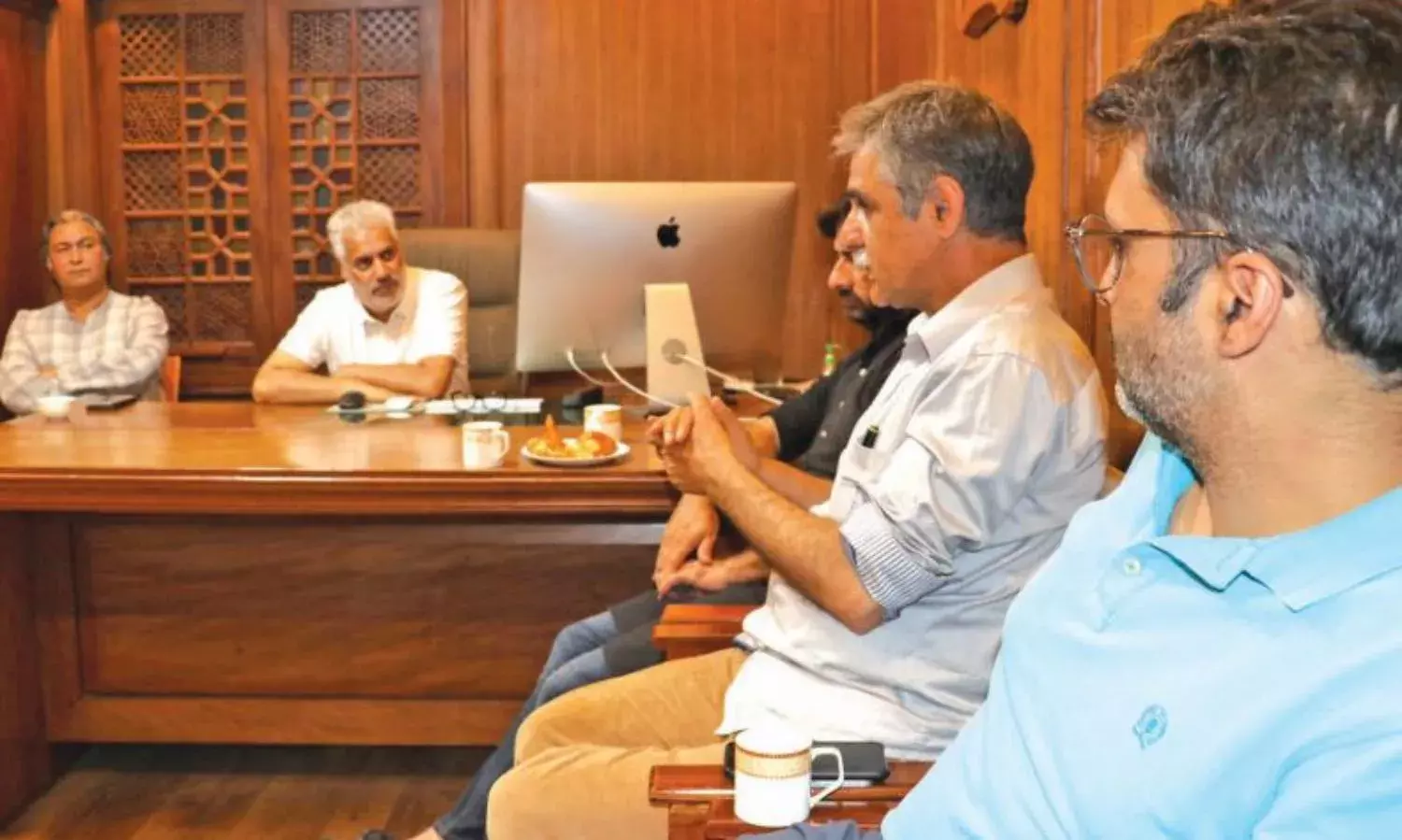Midnight Raids, Arrests and Ad Blocks Confront Editors and Journos in Kashmir
Truth a casualty?

SRINAGAR: Amid the ongoing investigation into the 2017 “terror funding” case, the local print media in Kashmir has come under “immense pressure” with editors resorting to “self-censorship” in order to avoid a backlash from government investigators.
The questioning of Fayaz Kaloo, editor-in-chief of the state’s leading English daily Greater Kashmir, and the recent arrest of the editor-in-chief of the Urdu daily Aafaq Ghulam Jeelani Qadri, in a midnight raid on his house for a case that is over two decades old, has put the local press in a state of uncertainty.
Aasif Sultan’s arrest, a journalist with the Kashmir Narrator magazine whose case was listed among the Committee to Project Journalists’ 10 most pressing issues that threaten media independence, has only increased the gloom in Kashmir’s journalistic community.
Kaloo, who also owns Greater Kashmir Communications Private Limited which publishes the paper, is reported to have faced questioning by the National Investigation Agency over news items that have appeared in his publications since the killing of Hizbul Mujahideen’s Burhan Wani in 2016.
According to reports, Kaloo was also questioned on Greater Kashmir’s sources of funding in its initial years, before GKCPL expanded to include Urdu daily Kashmir Uzma, English weekly Kashmir Ink and Urdu weekly Nawa-e-Jhelum.
In conversations with nearly a dozen editors and journalists based in Srinagar, The Citizen found that authorities have likely issued “verbal instructions” to local mediapersons to censor news that may be seen as “anti-national” or “going against the official narrative”.
“You will not find statements of a regional political party or separatists on our front pages for the past three to four months, after the Pulwama attack. I was implicitly told by officials that my revenue from government ads will be affected if I don’t oblige,” one editor of an English daily said.
Speaking with The Citizen, the editor of another English daily recalled a meeting with a top security officer who informed him that his paper was “showing the government in a bad light” and giving “unnecessary coverage” to separatists and to Pakistan.
“When security officials start dictating to journalists who to report about, what to report and how to report it, truth obviously becomes a casualty. Despite resisting initially, I was forced to toe the official line because it was impacting the paper financially,” the editor said.
Sources said the state administration, after stopping advertisements to the Greater Kashmir group and to Kashmir Reader, another English daily published from Srinagar, is reviewing the process of advertisement distribution to local dailies.
“There are mysterious pressure groups influencing the process of ad distribution. Now the whole process is being reviewed,” a senior officer in the administration told The Citizen.
However, the editor of an Urdu daily said there was “no pressure” to toe a particular editorial line. “Editors and journalists in today’s Kashmir are crawling when they were asked to bend. Everyone wants to be in the authorities’ good books, which has impacted the editorial freedom and the overall culture of reporting in Kashmir,” he said.
The pressure on local media houses in Kashmir has also impacted the performance of journalists. “Ethics and rules are necessary but survival is more important. Reporting independently becomes difficult when the organisation is under pressure. How will journalists work in such an atmosphere? What we are doing today is merely PR,” a senior journalist told The Citizen.
Another journalist with an Urdu daily was removed from the Hurriyat beat and assigned to report on “environmental issues”. “No one covers Hurriyat now. When there is some important announcement, we carry their official statements but on the inner pages,” he said.



